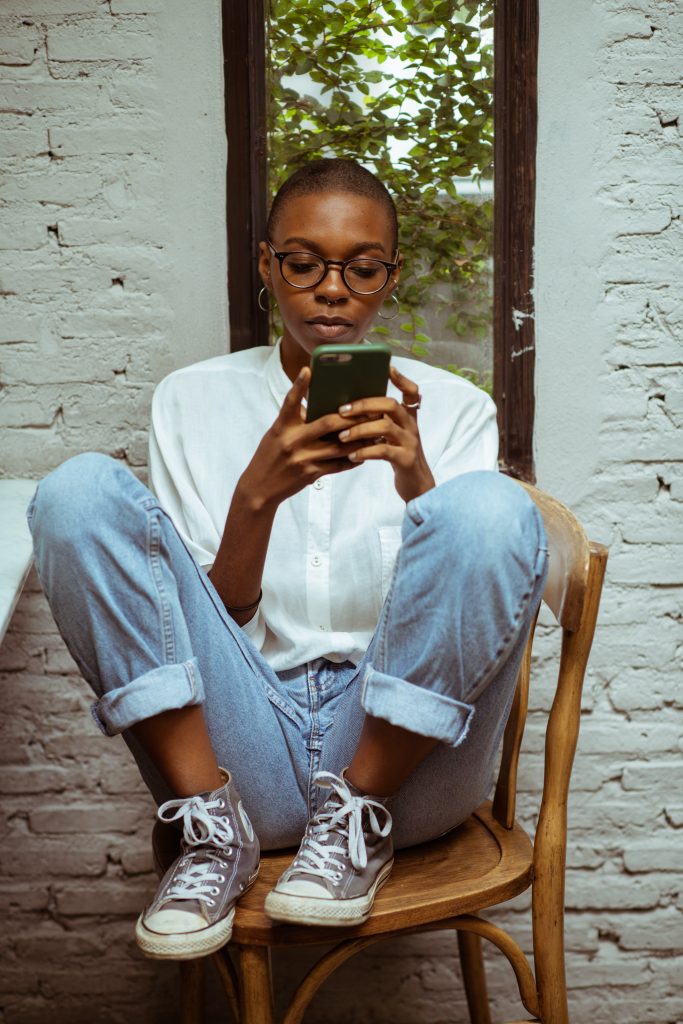2021 was the year to adjust and recalibrate after the unprecedented year that was 2020. Now, as in the blink of an eye, the year has ended, along with its failures and triumphs. To introduce the new year, we interviewed members of our Nigerian creatives’ community and are sharing some lessons they learnt in 2021. We hope you will find these lessons useful as we usher in the new year.

1. Shoot that shot
The difference between successful and unsuccessful artists isn’t just talent or opportunity or resources. It’s the belief that they can make their goals happen. This was the lesson Ann* learnt in 2021. “Submitting my work for open calls even when I was in doubt was a great lesson I learned in 2021,” she said, “I got accepted for a prestigious art residency which I thought I had very little chances of getting but submitted my application anyway.”
Remember not to let your fear of rejection stop you from shooting your shot. You will never know if you don’t try. “Getting rejection mails doesn’t mean that your work is bad”, she adds. “It might just be that it doesn’t fit into that space at that time. Because art is subjective, the jury would judge works submitted from lenses of their biases and that’s fair. I no longer take rejections so personally and I now jokes out of them.”
Perhaps you have not gotten to the level of making jokes out of rejection yet, but it is an important lesson to carry into 2022. Rejection mails are not a reflection of the quality of your work. They are a reflection of the biases of the jury.
2. Remain consistent
Some people say that creativity is like muscle memory. When you consistently train that muscle, creativity will come to you when you need it. We are not sure how true that is, but we do know that consistent work creates a state that inspires new ideas, sparks creativity and hones your talent.
As Hadiza, a writer in Lagos state, says, “This year, I found that practice makes perfect. I seized every opportunity to practice my craft and listened to a lot of criticism (I didn’t take all though) thus I saw my craft get fine-tuned” .
“I learned to remain consistent through it all regardless of my feelings”, Abieyuwa, a painter in Lagos state, adds, “I also learned to stay authentic regardless of what’s selling in the marketplace per time or rejection emails, and regardless of rejection emails.”
3. Keep on learning
Everyday is an opportunity to learn something new, and for these artists, 2021 was full of growth-induced learning.
“In 2021, I was extra open to learning”, says Kene the writer, “I read really great stuff and tried to figure out what made them tick, I also read some bad stuff and tried to figure out what spoiled them. This vastly improved the quality of my own work.”
Besides improving the quality of your work, learning can also lead to an improvement in strategy. Ehis, a Lagos based photographer, emphasizes the importance of working smart. “Be positive that you will get what you desire, hold on to this belief in your down moments and keep working hard and smart”, he says.
For him, working smart goes beyond creating and includes knowing how to navigate the art space. This involves sharing your works consistently on his socials, participating in portfolio reviews, open calls, attending art exhibitions, festivals, and networking events, and creating the type of works that you would want to get commissioned for in order to build a commercial portfolio.
4. Build formidable relationships
Nowhere is the power of relationships more evident than in the creative industry. Many opportunities are dependent on knowing the right people who will get you into the necessary spaces.
This is why Duro, a photographer in Lagos, says it is important to “Have good people in your circle. This year has taught me that crazy days will come and na them go dey for you. You sef learn to dey for people, as life no dey about you alone”. He also adds that he learned to call for help when needed as he has realized that there’s no shame in this.
Join our community today to get access to insider information and an opportunity to bond with community of creatives who want to support you.
5. Manage your time well
If there’s one issue that creatives struggle with, it is time management – especially when freelancing. Having an unstructured schedule can mean procrastinating on creative work or trying to do too much at once. Call it time mismanagement or lack of focus, it is a problem we have to deal with head-on.
“You can’t half-ass writing”, Emeka, a writer in Lagos state says, “You have to be intentional about writing at specific times, even if it’s for five minutes per day. That’s what I’ve learnt this year.”
This advice also applies to other forms of creativity and not just writing. He adds that it’s okay to take a break from it and focus on other writing-related activities, like reviewing articles or reading a new subject. Just stay in the general ballpark so rust doesn’t set in.
*Not their real names.

